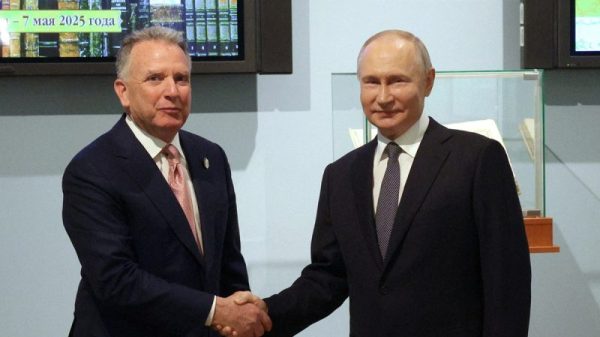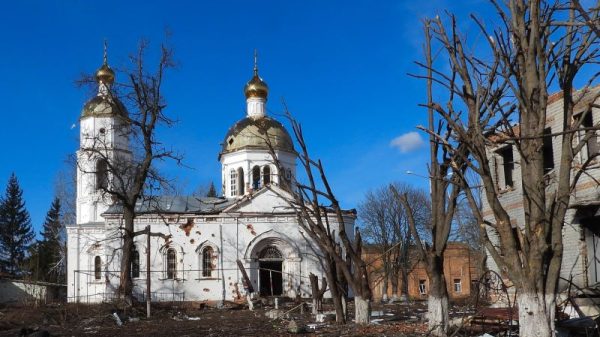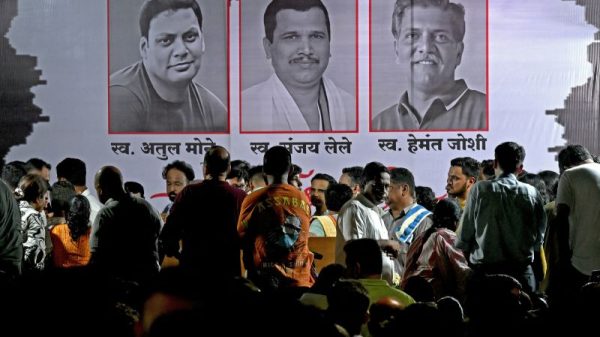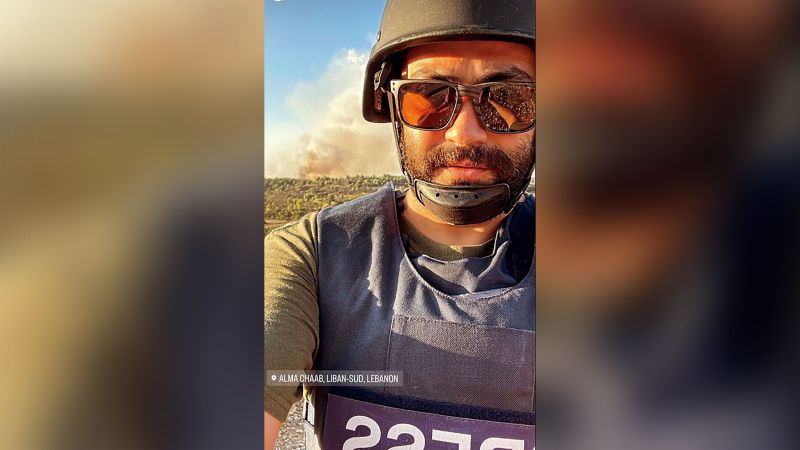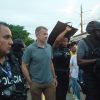Investigations by two news organizations and two human rights groups made public on Thursday say that it was Israeli tank shells that in October killed Reuters videographer Issam Abdallah and injured six other journalists in southern Lebanon.
The reports by Reuters, AFP, Amnesty International, and Human Rights Watch drew on forensic analysis, witness testimony and interviews with government officials, lawyers and medical professionals.
Eylon Levy, a spokesperson for the Israeli government, said Thursday that he was “not familiar” with the new reports. “The guiding principle in Israel’s campaign against Hamas is we uphold the principles of international law regarding proportionality, necessity, distinction,” he said. “We target Hamas, we do not target civilians.”
IDF spokesperson Richard Hecht on October 14 called Abdallah’s death “a tragic thing,” without naming him directly or acknowledging Israel’s involvement. The same day, the IDF said: “A report was received that during the incident, journalists were injured in the area. The incident is under review.”
AFP and HRW claim in their reports that the strike was a “deliberate,” targeted attack by Israel on the journalists. In a statement to Reuters, Hecht said, “We don’t target journalists.” He did not provide further comment, the news agency reported.
Abdallah, 37, was killed and six other reporters were wounded while filming the Israeli border from southern Lebanon. AFP photographer Christina Assi had her leg amputated and remains in the hospital, according to AFP.
After analysis of weapon fragments found at the scene, the reports say the journalists were killed and wounded by a 120 mm tank round of Israeli origin “that is not used by any other groups in the region,” AFP adds, fired from a little over one kilometer from the teams’ position.
Al Jazeera has accused Israel’s military of “deliberately targeting the journalists to silence the media,” saying the attacks are a part of “a pattern of ‘repeated atrocities’ against journalists.”
Amnesty International’s investigation did not find “any indication that there were any fighters or military objectives at the site of the strikes.”
“Israeli forces had observation towers, ground elements, and air assets deployed to closely monitor the border. All of this should have provided sufficient information to Israeli forces that these were journalists and civilians and not a military target,” Amnesty said in its report.
“Our investigation into the incident uncovers chilling evidence pointing to an attack on a group of international journalists who were carrying out their work by reporting on hostilities. Direct attacks on civilians and indiscriminate attacks are absolutely prohibited by international humanitarian law and can amount to war crimes,” said Aya Majzoub, Amnesty International’s Deputy Regional Director for the Middle East and North Africa.
“The strikes were deliberate and targeted,” AFP said in its report. AFP global news director Phil Chetwynd said in the report, “AFP has been very clear that we will take all judicial avenues that we deem relevant and possible to ensure that we can get justice for Christina and Issam.”
Speaking Thursday in Washington, US Secretary of State Antony Blinken said that Abdallah’s death should be investigated. Blinken said it was his understanding that Israel had begun such an investigation and stressed the importance of seeing it through.
A Pentagon spokeswoman said earlier that the agency had not conducted its own assessment of Abdallah’s death but it continued to urge Israel to protect innocent civilians, including members of the press.














